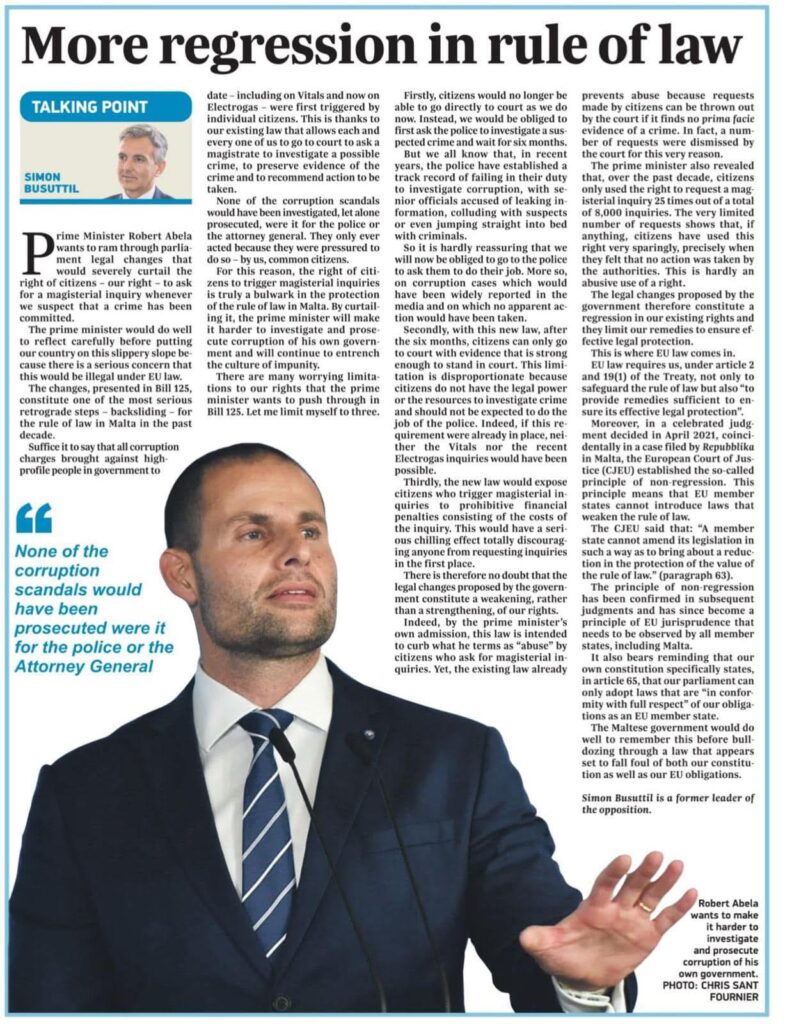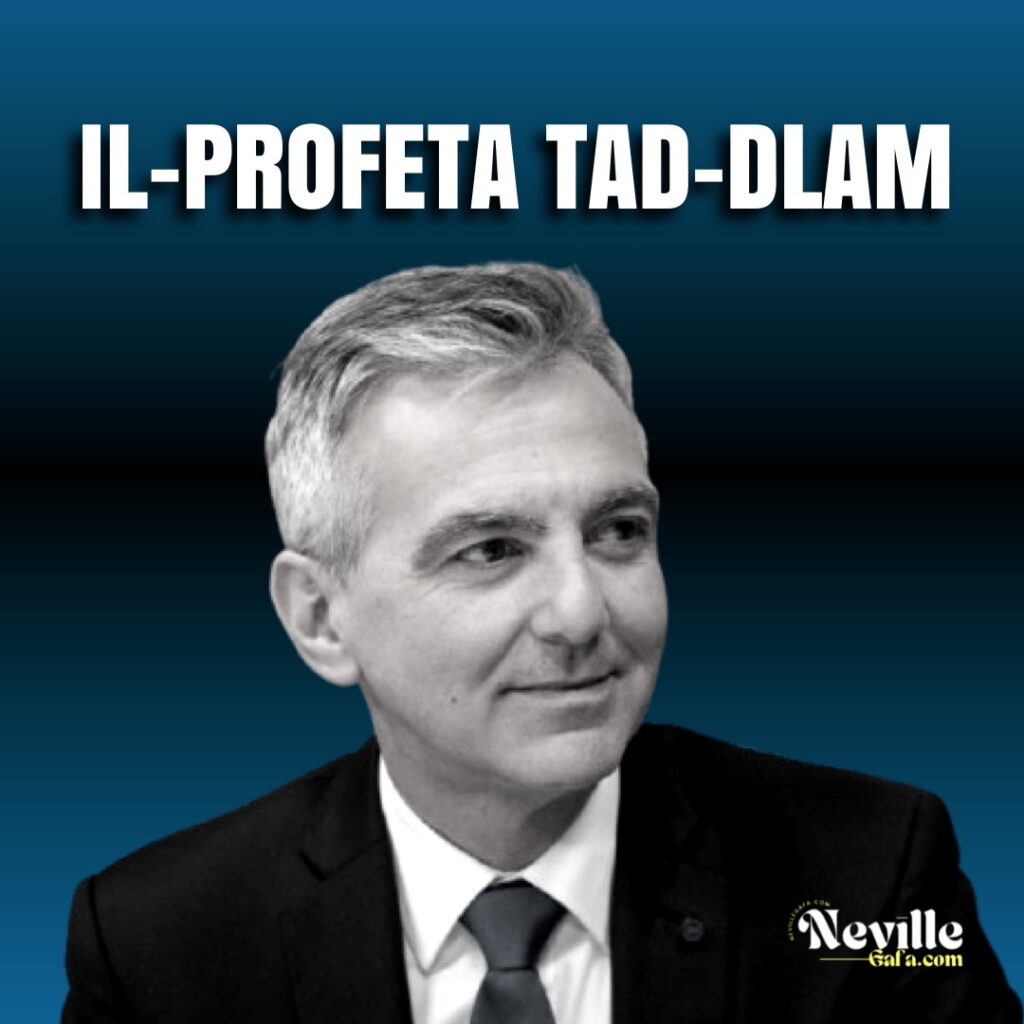Simon Busuttil, a former leader of the opposition, has returned to Malta, bringing with him the toxic political climate he once supported. His tendency for personal attacks and sensationalism has only served to tarnish Malta’s reputation on the international stage. Instead of promoting constructive dialogue, he resorts to fear-mongering regarding proposed reforms to the criminal code, particularly regarding magisterial inquiries.

Simon Busuttil’s Grand Return – Entertaining As It Is Predictable.
Ironically, Simon Busuttil and the Nationalist Party are attempting to invoke a principle established by the Court of Justice of the European Union in a case initiated by their coalition (Repubblika) in a failed attempt to undermine our country. Busuttil’s claim that these reforms represent a significant regression in the rule of law is not only exaggerated but fundamentally flawed.
The proposed amendments aim to streamline the process of “in genere” inquests initiated by private parties, ensuring that such requests are substantiated by admissible evidence. This is a necessary step to prevent frivolous claims that could overwhelm our judicial system and subject individuals to baseless inquiries, jeopardising their lives, safety, and financial security.

He asserts that citizens will be stripped of their rights; however, the reality is quite the opposite. The reforms will not eliminate citizens’ ability to seek justice; rather, they will ensure that those who do so have a legitimate basis for their requests. This change is crucial in a system where the integrity of the legal process must be preserved.
Furthermore, Busuttil’s assertion that the police have failed in their duty to investigate corruption is a sweeping generalisation that overlooks the complexities of law enforcement. It is worth noting that in recent history, the only political case where an investigation was halted by the police, involved a money laundering case by an international firm, which abruptly ceased when Dr Fenech Adami’s name was mentioned.

Simon Busuttil
Busuttil’s fear that these reforms will create a “chilling effect” on citizens seeking inquiries is unfounded. The requirement for evidence to support claims is standard practice in legal systems worldwide. It would be irresponsible to allow anyone to initiate an inquiry without a factual basis, as this could lead to the misuse of the legal system. Moreover, it will be at the court’s discretion to determine whether to order a person who has made an abusive request that leads to the opening of an inquiry to bear the costs of that inquiry.
Additionally, the notion that the government is infringing upon citizens’ rights contradicts the very essence of the proposed amendments. They are designed to enhance the efficiency of our legal system while ensuring that the rights of all parties involved—victims, the accused, and those seeking justice—are protected. It seems that Busuttil and the extremist group he is part of are comfortable with complacency as long as the system continues to perpetrate injustice against those who, in one way or another, cooperate with a legitimate government.
In conclusion, while Busuttil’s rhetoric may resonate with those who thrive on political drama, it does not reflect the reality of the proposed reforms. These changes aim to strengthen the rule of law by ensuring that inquiries are based on solid evidence and are conducted efficiently. Rather than perpetuating a toxic political environment, we should focus on constructive dialogue that genuinely serves the interests of justice and the well-being of our society.





